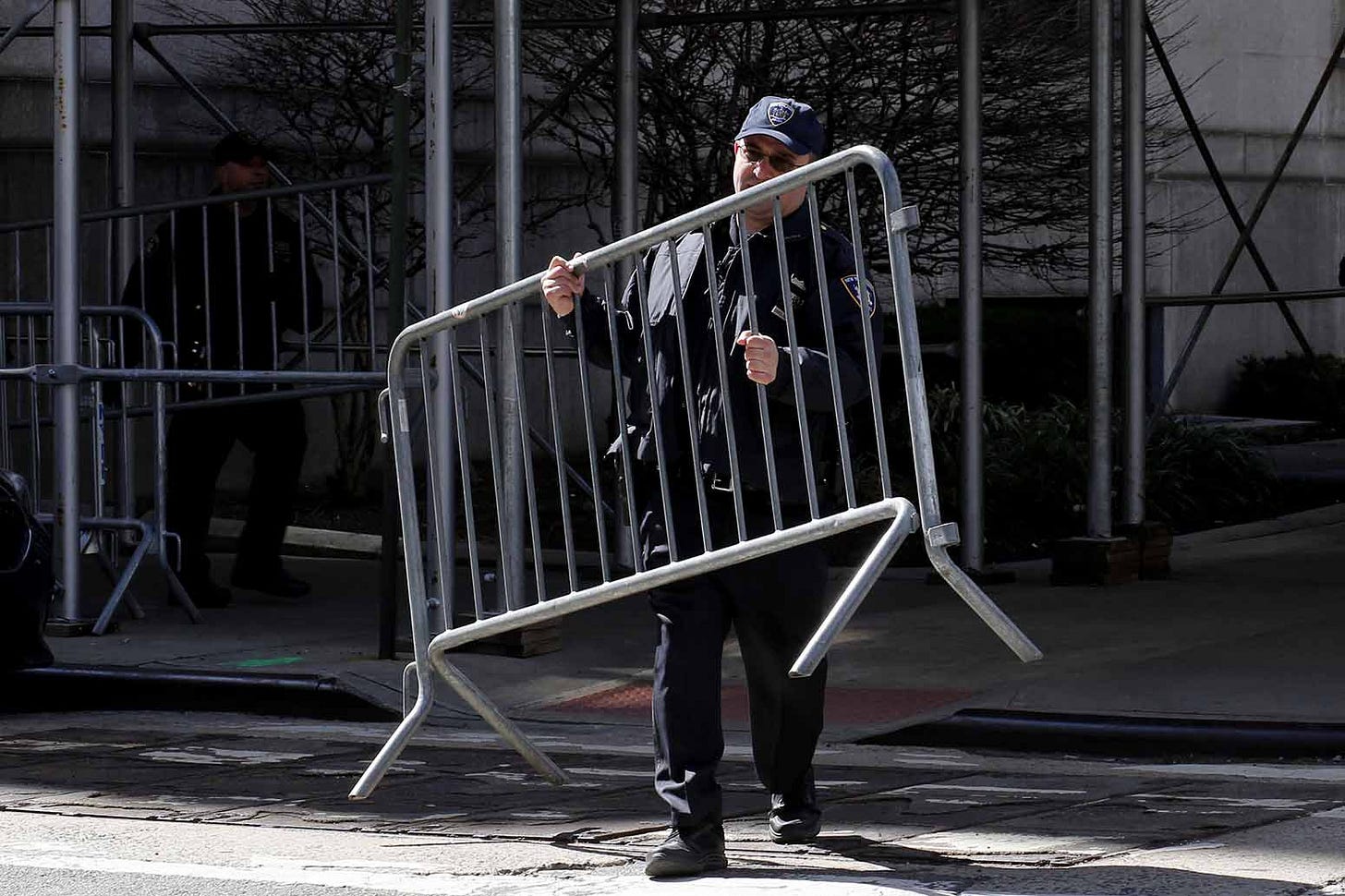If You Don't Like These Charges, Just Wait for More
I HAVE NO idea whether or not Donald Trump will be convicted on the 34 felony counts of falsifying business records he was charged with yesterday. The New York Times opinion section got one pair of guest writers to declare that "there’s nothing novel or weak about this case," and another guest writer to call it a "legal embarrassment" and "weak on its legal and jurisdictional basis."
From that, it seems safe to go with the conclusion that the legal experts who are talking about the case also have no idea how it is going to go. White-collar prosecutions are tricky because white-collar defendants can hire good lawyers to hammer away at ancillary legal issues and central questions of doubt until a case collapses. But can Donald Trump hire good lawyers, at this point in his life?
Even with commentators staking out every possible position, not many people are bothering to argue that Trump didn't do the things he's accused of doing. Trump has spent his entire life falsifying business records; the Trump Organization was just convicted of falsifying business records and tax fraud; his former fixer, Michael Cohen, pleaded guilty to campaign finance violations and other charges for carrying out the hush-money payments, on Trump's behalf, that are the subject of Trump’s own charges.
Instead the objections are technical—could a lawyer successfully object to Manhattan District Attorney Alvin Bragg's treating the cover-ups of the payments as felonies, or to Bragg's interpretation of the statute of limitations?—or really, at bottom, aesthetic. Is this the right kind of case to have brought against an ex-president? Is it too thinly constructed to bear the weight of history and politics? Is it too narrow to satisfyingly address the breadth of Trump's sweeping criminality?
Keep reading with a 7-day free trial
Subscribe to INDIGNITY to keep reading this post and get 7 days of free access to the full post archives.




